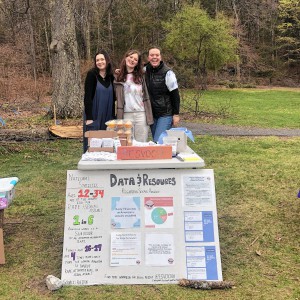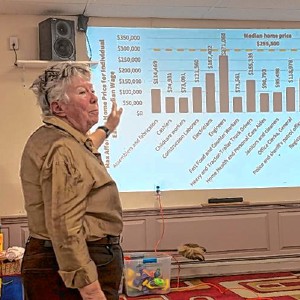Business Quarterly: Nisa Simila – End of benefits will affect tax bills
| Published: 01-24-2023 9:03 AM |
The last two years have seen many changes to our lives and how we go about living.
From hybrid meetings to masking to social distancing to canceling get-togethers, we have had to adjust our expectations and how to do things.
With the 2023 tax filing season approaching, there are several changes that will impact the refunds that many individuals and families received last year. As a result of the COVID-19 pandemic, American households saw big tax breaks that resulted in large refunds last year and we were able to assist people in filing returns that allowed them to pay rent on time, fix their vehicles and pay for school supplies and other household expenses. However, many families will feel the pinch as they file their tax returns this year with the expansion of certain credits having ended for 2022.
Shrinking Earned Income Tax Credit
The Earned Income Tax Credit is one such credit that saw impactful changes to provide economic relief from the COVID-19 pandemic. This credit, which reduced taxes owed or increased refunds for low- to moderate-income earners. Workers were able to use their 2019 earned income amount if it was higher than their 2020 or 2021 level to calculate the earned income tax credit. This allowed more people to access it and for larger amounts, nearly tripling in many cases. In 2021, the EITC for childless workers was expanded, allowing filers ages 19 and over to claim the credit.
This year, the EITC has reverted to pre-pandemic requirements, and childless workers are the most affected by these changes. Eligible taxpayers must be at least 25 but under 65 years of age to access the credit, reducing the credit amount for single childless workers to just one-third of what it was last year. Workers with children saw slight increases in income caps and credit amounts.
Got children?
Another credit that is seeing significant changes is the Child Tax Credit. This credit reached more households with children in New Hampshire and saw funds used mainly for basic needs such as food, housing and child care. Families without earned income were eligible and the income cap was raised, allowing for more households to benefit from the maximum of $3,600 per child.
Article continues after...
Yesterday's Most Read Articles
This year, households with three children or less must have at least $2,500 in earned income, and the maximum credit is $2,000, of which up to $1,500 may be refunded after taxes are paid.
What about the children?
Tax year 2021 also saw the Child and Dependent Care Credit increased and made available for more working families, many of whom paid more for child and dependent care than any other household expense. The income limits and the amounts given were expanded last year, and it was also made refundable. This year, it is no longer refundable, meaning the excess of the credit after taxes owed will not be refunded, making refunds considerably smaller.
No stimulus payments in 2022
In 2020 and 2021, eligible adults and qualifying dependents received three payments totaling up to $3,200 from the government to provide economic relief to struggling households during COVID-19. These payments are still available to those who did not receive them and did not file tax returns to access them if they file a return for those years. There are no such payments in 2022.
No charity for charity giving
Last year, a maximum of $600, depending on your filing status, could be deducted without itemizing. However, this year you can only deduct your charitable donations for 2022 if you are itemizing and not taking the standard deduction.
How to maximize your refund
There are a number of companies offering free tax filing through their websites, but adding schedules and forms on top of a basic return will drive the cost upward. The IRS Free File option, which opened on Jan. 23, has partners that eligible filers can access to prepare their own returns for free.
Our VITA program offers free tax preparation and e-filing to individuals and families earning $60,000 or less, which can save households an average of $220 in professional tax preparation fees. Our volunteers are IRS-certified, trained and ready to help you get the most out of your tax refund. Call 603-924-6800 to see if you are eligible and to schedule an appointment for dropoffs on Wednesdays or to have your return prepared in-person on Saturdays.
Nisa Simila is the communications and money matters coordinator at The River Center. The River Center: A Family and Community Resource Center provides parent education, family support, and community connections in a welcoming environment to strengthen individuals and families in Peterborough, Jaffrey, New Ipswich and surrounding towns.
Funding comes from Monadnock United Way, New Hampshire Charitable Foundation, and the contributions of individuals, businesses and private foundations. The River Center is located at 9 Vose Farm Road, Suite 115, Peterborough. For information, call 603-924-6800 or visit rivercenternh.org.
]]>

 Crash on Route 202 in Jaffrey leads to trapped driver, fuel spill
Crash on Route 202 in Jaffrey leads to trapped driver, fuel spill End Sexual Violence on Campus group holding April 27 event
End Sexual Violence on Campus group holding April 27 event BUSINESS QUARTERLY: Grants allow towns to study housing
BUSINESS QUARTERLY: Grants allow towns to study housing BUSINESS QUARTERLY: Dan Petrone – A guide to the commission settlement
BUSINESS QUARTERLY: Dan Petrone – A guide to the commission settlement
